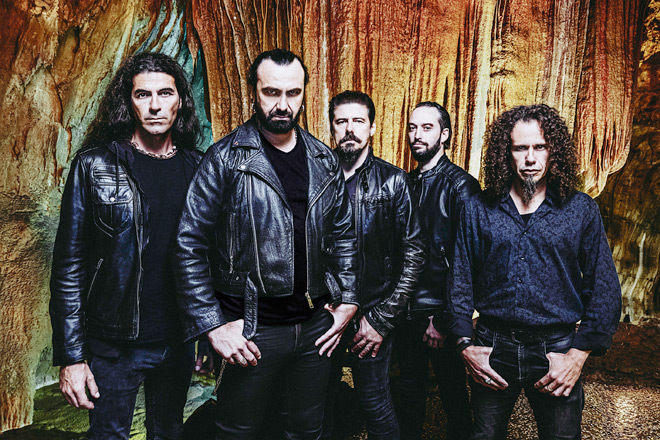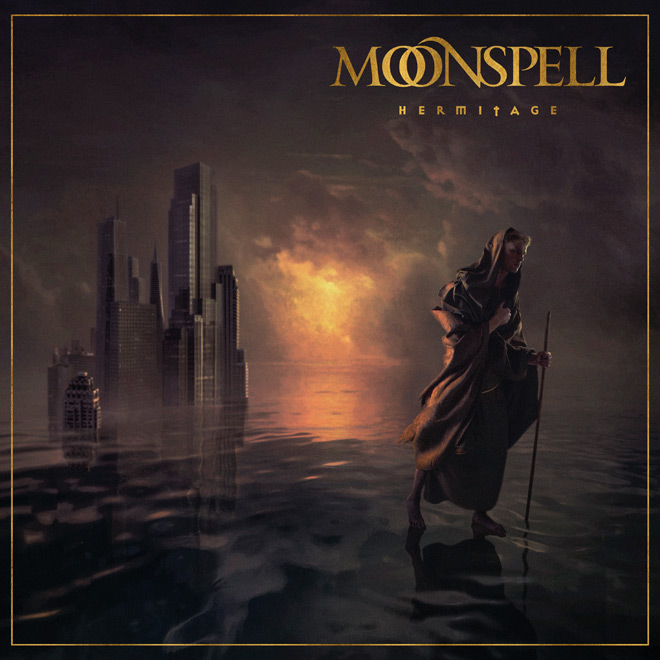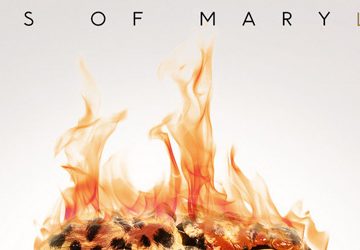
Not only did Moonspell put Portugal on the Heavy Metal map, they transcended barriers of both sound and image on this pathway to greatness. Courtesy of Napalm Records, Hermitage sees the light of day in these days of no light, dropping into our dashed and scattered hopes, coming at perhaps just the right time to bank the fires of our collective hopelessness. The question remains, as always, will the new album vault these Iberian wolves further up the rungs of the underground ladder?
After the beautiful ethnic bombast of 1755 and the goth-toned perfection that was Extinct, it was intriguingly unclear where Moonspell would go next. After 17 years of lineup stability, the band said goodbye to drummer Mike Gaspar, who manned the kit since 1996’s smash-hit Irreligious. Taking over on the skins, the band has enlisted countryman Hugo Ribeiro (Desolate Plains/Godvlad) and, despite this potentially chemistry-disrupting happenstance, the band soldiers on. Adversity is nothing new to these veterans, who overcame considerable odds to get where they are.
Hermitage is where they are now, and the views from its confines are magnificent. In an age of enforced isolation, Moonspell has made an album which delves every corner of solitude, bravely plumbing the cleaving of the self from the ugly constructs of world society. We got our taste of its promise with the immersive and built-up intensity of “The Greater Good,” the evocative video of which married modern desperation to the catchy lament. “Common Prayers” came next, a Faith No More-style repeated riff with soaring keyboards and vocalist Fernando Ribeiro’s more elegant side at the forefront.
These are strong songs, but they barely prepare the listener for what is to come. The dreamy and sedate “All or Nothing,” with its silky leads and rolling percussive grandeur, leads into the massive title track. A number of spots on the album feel like a clash between the untamed abandon of Wolfheart (debut album 1995) and the revitalized rediscovery of Antidote (2006). On “Hermitage,” Fernando’s robust yell evokes the wildness of Moonspell’s youth, as though they have come full circle to find that despite all the changes within and without, they are still exulting in something they lost as men and found as wolves.
The peerless midsection of the album continues on “Entitlement,” its loungy contemplative heart revisiting their late ’90s, early ’00s era. Lower vocals, layered keys and textures of guitar soothe without being boring. “Its human nature to be afraid . . .” croons Fernando. If our current Covid times could have a dirge, an explanatory lament, this would be it. The soloing toward the end is some of Ricardo Amorim’s most beautiful work.
Instrumentals are sometimes used as breathers between songs, noodling interludes that while not detracting from an album, do little to advance its cause. Not so “Solitarian,” with its David Gilmour-esque guitar leads, flowing over the listener like cool water. In Moonspell terms, this is their “Genghis Khan.” As with Iron Maiden in their heyday, each member of the band is on fire. Ares Pereira, rounding out the bottom end on bass guitar, is perfect accompaniment to his bandmates.
Every once in a while – usually once a career – a band gathers in a studio and creates a song that is more than a song. It is an anthem which defines both who they are and who they were. “The Hermit Saints” calls out into the abyss, demanding to be heard and heeded. Again, Fernando wields his voice as an instrument, going from his lower cleans to that robust yelling. You will want to sing along to this one repeatedly, and if our overlords ever decide to let us gather again, you will want to sing this ode to solitude with a thousand others at your back. Duality and irony, spurred by fantastic art.
“Apoptheghamata” and “Without Rule” bring the album into fruition, leaving off with the aptly titled “City Quitter” outro at the end. Melody and grace signify the former song, Fernando’s vocals and some of the marriage between Amorim’s leads and Pedro Paixao’s goth-and-horror keyboards again hark back to their earliest era. The latter song closes things down in grim but gorgeous fashion, beginning with minor key notes, harmonized vocals, and the poetry of Moonspell guiding the listener along.
It is difficult to know where we are headed, and if indeed the way we interface with music will ever be the same again. But as long as the bands who moved us keep moving us, there has to be some good left in the world. With this stroke of powerful genius, Moonspell has helped solidify their place as one of underground Heavy Metal’s best and brightest. For this reason, Cryptic Rock gives Hermitage 5 out of 5 stars.






No comment